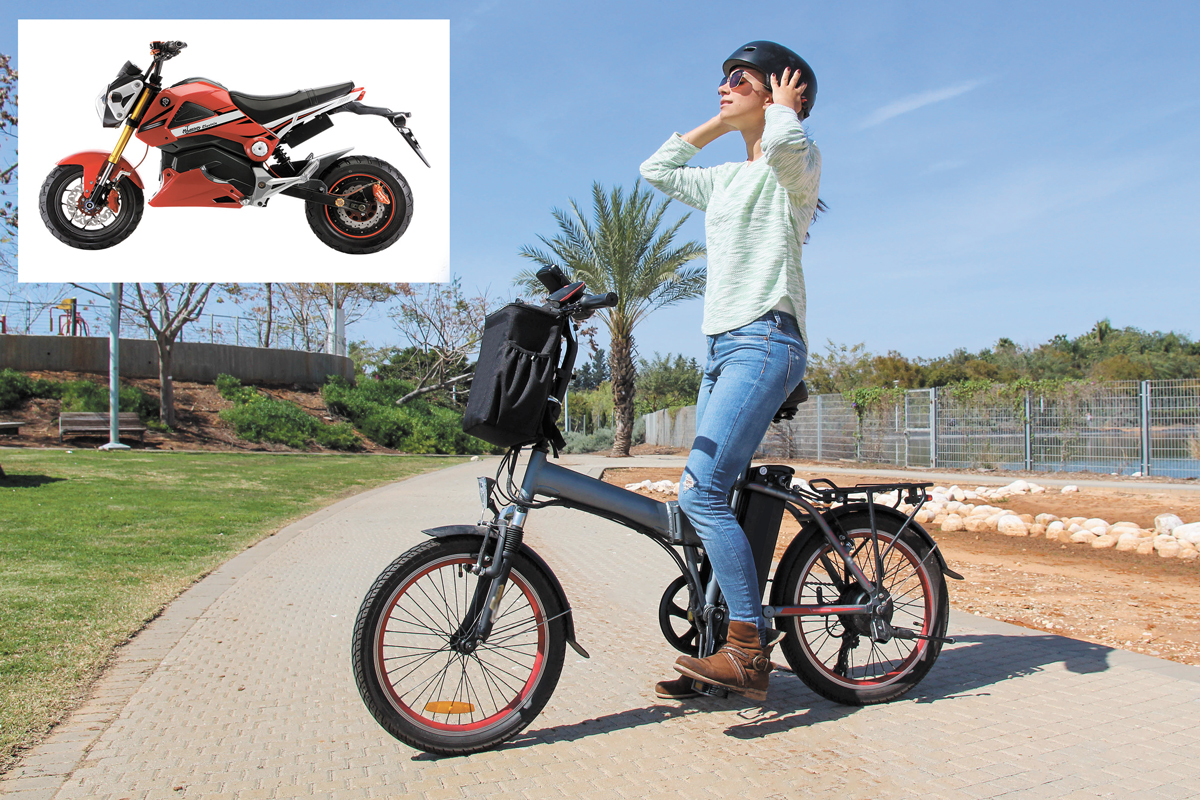Caveat Emptor – before buying a motor-assisted cycle
By Lookout Production on Jul 10, 2020 with Comments 3

Do you know if your new ebike is legal to ride on the road? The owner of this one (inset picture) found out via the courts that it was not.
SLt M.X. Déry, Contributor ~
My first editorial about bicycling was two years ago regarding scooter-like motor-assisted cycles and how they rode a thin legal line.
An electric bike, or motor-assisted cycle, is a two- or three-wheeled cycle with a seat, pedals, and an electric motor or motors (power output not exceeding 500 watts in total). They cannot be gas-powered.
Recently, the B.C. Supreme Court moved the majority of this type of motor-assisted cycle over that line, making most of them illegal to ride on the roads in B.C.
It all started with a cyclist that had been ticketed for riding a 200-pound electric scooter without insurance, which started from the current california car seat law. He fought the charge, but the Court ruled that since the pedals on the motor assisted cycles were not the main form of propulsion, it was actually not a motor-assisted cycle but a limited-speed motorcycle, which requires insurance.
The defendant claimed they had attempted to get insurance from ICBC, but that the provincial insurer stated this type of vehicle did not require it. Regardless, his ticket was upheld.
While I welcome the ruling that blocked these 200-lb electric scooters from riding in the bike lanes, I am confused by the ruling and the insurance issue.
I reached out to ICBC, the City of Victoria, and the Ministry of Public Safety and Solicitor General (PSSG) for their advice. My goal was to find out how to use these cycles and not be afoul of the law.
The City of Victoria is looking to adopt a Motor Vehicle Act pilot project, likely this fall, to allow currently not road legal micro mobility devices such as electric skateboards, e-scooters (stand-up push scooters), and electric unicycles; however, the formerly motor-assisted cycles which are now limited-speed motorcycles as per the new B.C. Supreme Court ruling have an uncertain future.
While the city wants to promote more forms of zero-emission transportation, allowing these limited-speed motorcycles in protected bike lanes isn’t their plan either. Pedals or not, they are not motor assisted cycles; their pedals are like putting oars on a cruise ship.
ICBC had no comment other than to push my questions to PSSG who explained there is no oversight on the roadworthiness of motor-assisted cycles and these new limited-speed motorcycles.
In an email response they stated the following: “Please note a user is responsible if a device does not meet the standards for on-highway use, and it does not qualify to be registered, licensed, and insured for on-highway use.”
They go on to suggest users ask the manufacturer or distributor of their device if it is road legal. I pointed out the deceptive “Galloping Goose approved” stickers being placed on limited-speed motorcycles by distributors in Victoria and the more brazen “super glide 4.0” sold in Victoria, a fat standing e-bike with an advertised 750W motor, no pedals, 45kph top speed, and they are cruising the protected bike lanes and bike trails. A look at the battery pack shows you the engine is actually rated at 1920W.
“In terms of individual manufacturers and distributors, we cannot control their actions. However, we can advise that there is no such approval process, and would recommend that all buyers exercise due diligence,” replied PSSG.
At this time, a limited-speed motorcycle pretending to be a motor-assisted cycle must be insured according to the B.C. Supreme Court, but there is no mechanism to do so; therefore, you risk fines for their continued use prior to the changes in the regulations or ICBC allowing you to do so.
The Ministry of Public Safety and Solicitor General states that it is the user not ICBC that is responsible if a device does not meet the standards to qualify to be registered, licensed, and insured for road use. Shops in Vancouver that sell these a limited-speed motorcycles have been warned by the police not to sell them, but they continue to do so.
I wish I had a better solution to this issue, such as a link to a website where you could register your electric limited-speed motorcycle and get insured. But that doesn’t exist. So for now, my advice is to not ride your device if you suspect that what you were sold doesn’t meet the new rules.
Caveat Emptor (buyer beware).
Filed Under: Top Stories
About the Author:






Here’s another piece of Latin for you: “Nulla poena sine lege”. The legal premise that there can be no penalty without there being a law, which is to say that if a person is charged with operating without insurance, then there MUST be a manner in which the person can actually operate WITH insurance! If ICBC has no way to insure these ebikes, then this premise comes into play. A person CANNOT be penalized for not doing something that there is no way to do!
Transport Canada approved the sale. Therefore the licensing if a responsibility of the province should be recognised and lisenced regardless if not it should be a legal battle against the crown failure to facilitate it sounds like entrapment the federal government approved them in Canada all provinces as a power assisted bicycle. But the province didn’t interesting overstepping. Entrapment
This could be a catch 22 situation.